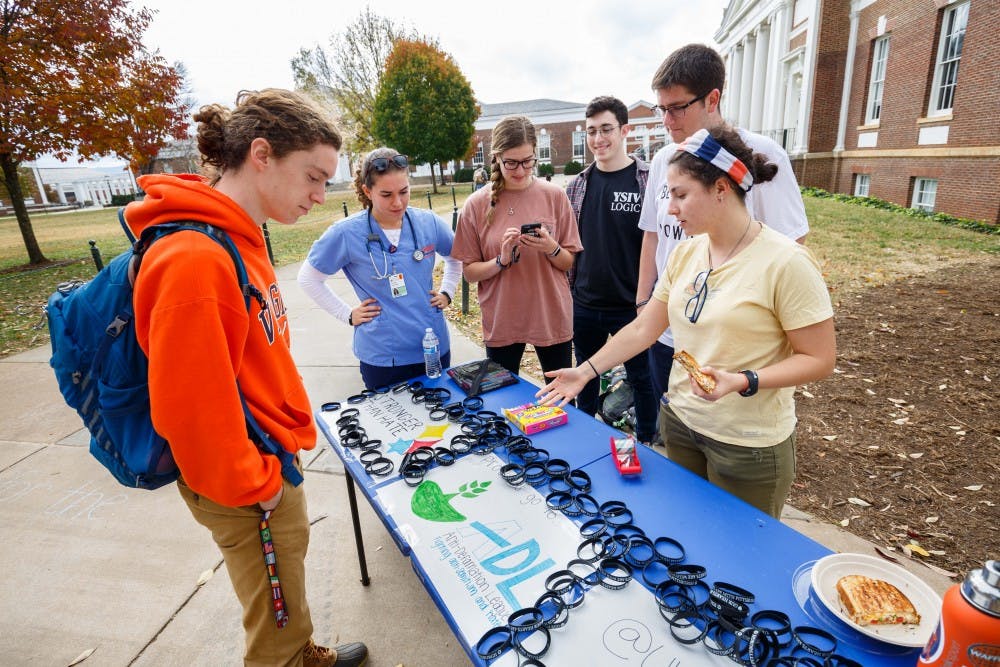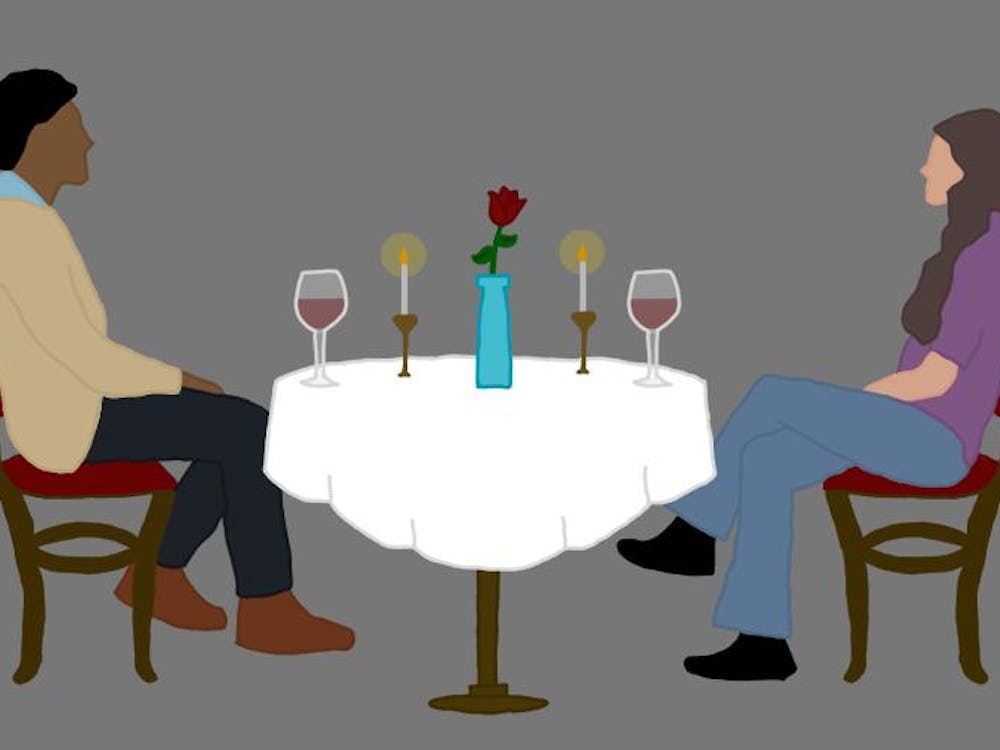Despite what I may tell others, I am not fine. The shooting at the Pittsburgh synagogue hurt me deeply. I cherish my Jewish identity, and all of the memories I have that come with that identity. Each of my Jewish communities — my home synagogue, summer camp and Hillel at U.Va. — provides a warm and peaceful environment. My heart aches to think of the similar peace that was recently broken in Pittsburgh’s Jewish community. The horrific displays of anti-Semitism that occurred, and the knowledge that it resulted in the deaths of 11 innocent Jews who were in the midst of prayer, physically makes my stomach hurt. It made me — and continues to make me — upset, angry and disappointed.
I am angry and hurt that a fellow American slaughtered my people in a holy place. I am upset that Americans can preach religious freedom and still ignore it whenever they deem it necessary. I am furious that, days after the worst anti-Semitic act in the history of the United States, three different anti-Semitic acts still occurred.
On Wednesday, Oct. 31, someone spray-painted “F—k Jews” on a synagogue in California. The next day, someone wrote “Kill All Jews” inside a New York City synagogue. That Friday, someone committed arson at seven different synagogues and Jewish schools in Brooklyn. I am frustrated by some portrayals of the Pittsburgh shooting as another instance of “gun violence,” rather than focusing on its true cause — anti-Semitism. In a world that largely overlooks the continuing existence and prevalence of anti-Semitism, framing the event as one of “gun violence” once again diverts society’s attention from the hate that is levied against Jews.
Why has it touched me so deeply? I do not personally know anyone who was killed or injured, and while I do mourn the loss of 11 Jewish lives, my sense of hurt runs much deeper than that. This was an attack against the Tree of Life synagogue and its congregants, but it was also an attack against the entire Jewish population — against me, my friends, my family, my classmates, my people. It was an attack against Judaism itself, and thereby an attack against a core essence of my self-identity.
To compound the hurt, it happened in the United States, the country in which I live and hold dear. I grew up in Mechanicsville, Va., a predominately white and Christian town. As the only practicing Jew in a class of 300 students, I encountered a preponderance of confusion about Judaism, but rarely anti-Semitism.
I heard “don’t all Hebrews live in Israel?,” that it is offensive to say the word “Jew”, that someone can’t be Jewish if he/she has a tattoo and that Judaism demarks a “race” of people. I was told that I “look Jewish” because my hair is thick and curly. None of it was said with a malicious intent though, and I perceived it as a lack of knowledge.
I have encountered a couple of offensive remarks, though I’ve been fortunate in that they are few and far between. I heard that “Being a Nazi would be cool,” and I was once informed that I must be good with money, since all Jews are good at money and banking. However, on the whole, I have never before really felt targeted or hated in the United States.
My perception of anti-Semitism began to change this past spring semester when I studied abroad in Amsterdam. It was here that I first came face-to-face with the full, harsh reality of the world’s history with anti-Semitism. Around the city, if you look carefully, you will find small square plaques in the sidewalks outside of some homes. These list the names of the houses’ former Jewish residents who were later murdered by the Nazis during World War II. It is overwhelming to see just how many of them there are in this one city alone. I discovered an entire row of plaques on one street, marking a canal along which at least 200 Jews were taken from their homes and killed. Over 200 people, on only one street. I had been to three Holocaust museums before and learned about the history, but there is nothing that can compare to seeing such real, concrete reminders strewn about a modern city.
Toward the end of my semester abroad, I visited the Auschwitz-Birkenau concentration camps in Poland. This was a sickening and horrifying experience, but one that was absolutely necessary. I, as a Jew and as a human being, needed to see the true magnitude and capacity of hate left unchecked.
Hate sent 80 percent of incoming Jews on trains straight to the gas chambers and made the remaining 20 percent — husbands, fathers, mothers and wives — take the corpses out of the gas chambers and burn the bodies. Hate led to further deaths when some of these fathers and mothers committed suicide after burning the bodies of their children; they grabbed the electric barbed wire fence surrounding the concentration camp. Hate shoved the remaining Jews into barracks, in which some of them slept on the dirt during Polish winters and died during the night. Hate led to a fear of being eaten alive by rats that infested the barracks. Hate murdered six million Jews.
With this background in mind, I was proud that the United States did not suffer the same degree of anti-Semitism as did Europe, setting aside President Franklin Delano Roosevelt’s inaction in stopping the Holocaust. I was proud of our American civil liberties, which protect and value religious freedom and tolerance. Yes, there were many incidences of anti-Semitism in the United States before Pittsburgh’s shooting, but never before had it resounded so deeply with me. The Pittsburgh shooting made real in the United States what had seemed so surreal in Europe.
The Tree of Life synagogue shooting was more than an isolated incident for me. It was a clear act of anti-Semitism. Witnessing such a brutal force of hate against the Jewish people shattered my image of both religious tolerance and safety for Jews in the United States.
Melissa Nelson is a fourth-year Batten student.







